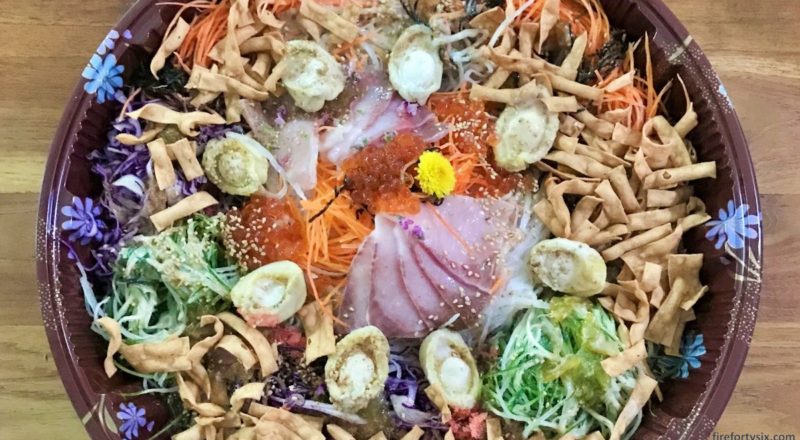Yusheng (鱼生) is an essential part of Chinese New Year celebrations in Singapore. The group tossing of auspicious-sounding ingredients also happens to be an acceptable excuse to make a mess at the dining table.
Throughout the 15 days of the lunar new year, restaurants all over the island try to outdo themselves by offering the prettiest and most appetising versions of this festive dish.
And it’s not just the Chinese restaurants that feature this item on their menus, Japanese restaurants have also gotten into the game, including Tanoke, a great place for good food and lots of sake.
What drew me to their creation was the use of hamachi to fulfil the raw fish component of yusheng, instead of the more common salmon. As well as the addition of generous blobs of ikura, one of my favourite sushi ingredients.
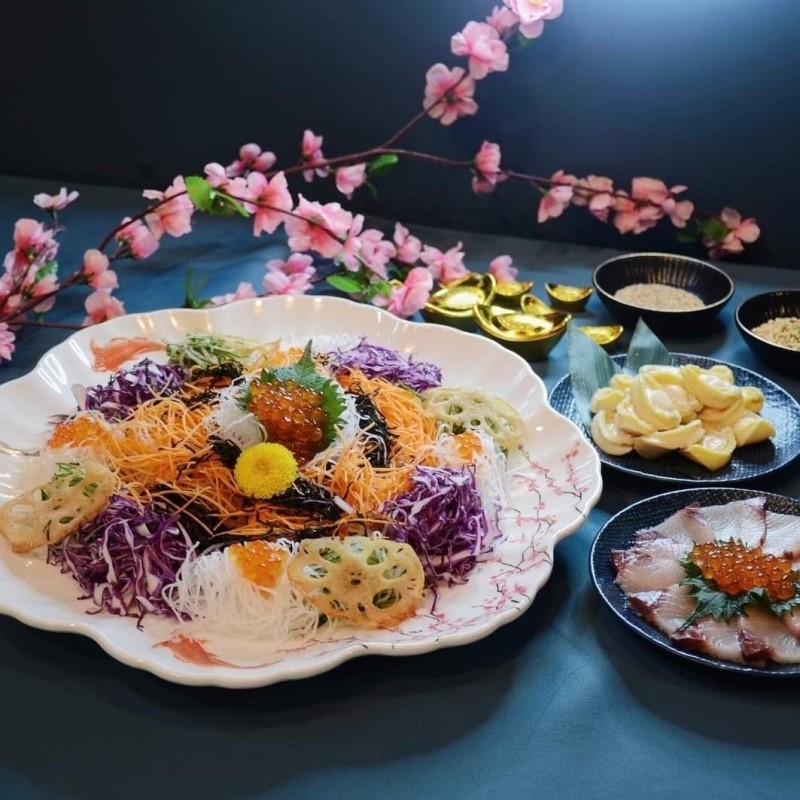
Priced at an auspicious S$88+ for a portion for 5-6 people, the Tanoke Prosperity Yusheng was more expensive than alternatives but not exorbitantly so, especially considering the premium seafood used.
I ordered it during the first few days of launch, and managed to score an additional early bird 15% discount. Delivery was also free since I topped up the order with another item to meet their free delivery threshold.
Delivery was confirmed for 6:45-7:15pm on a Saturday night and we were eagerly anticipating its arrival throughout the entire day.
The Wife is a huge fan of yusheng and tries to eat as much of it as possible, during the limited time that it’s available for sale. This was going to be her very first one this year, making it extra special.
I was a bit skeptical about the tight 30 minute delivery window, especially given that it was a weekend night during the busy new year period.
But at precisely 6:45pm, our doorbell rang. A very friendly guy passed us our food and wished us a happy new year, and I happily returned the greeting.
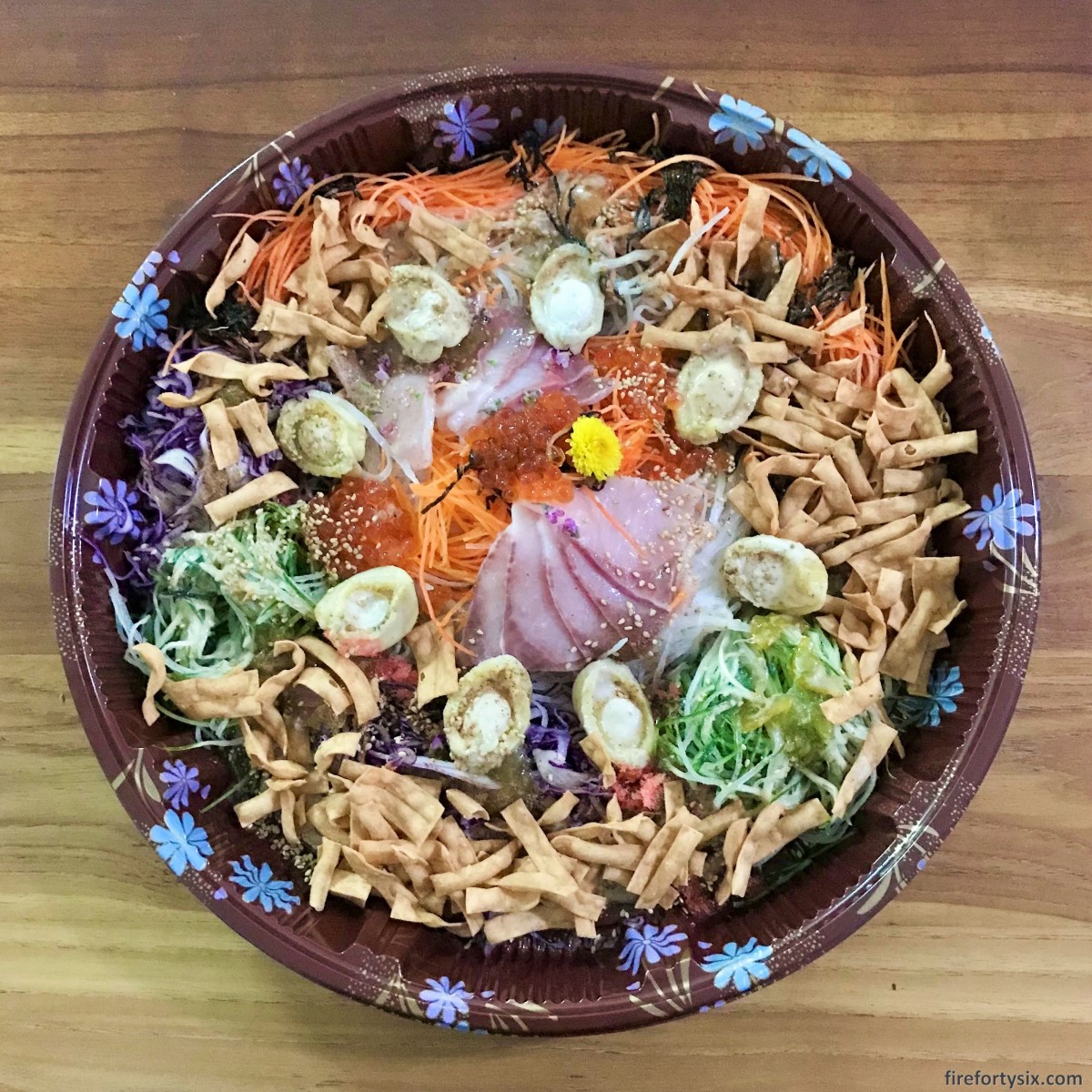
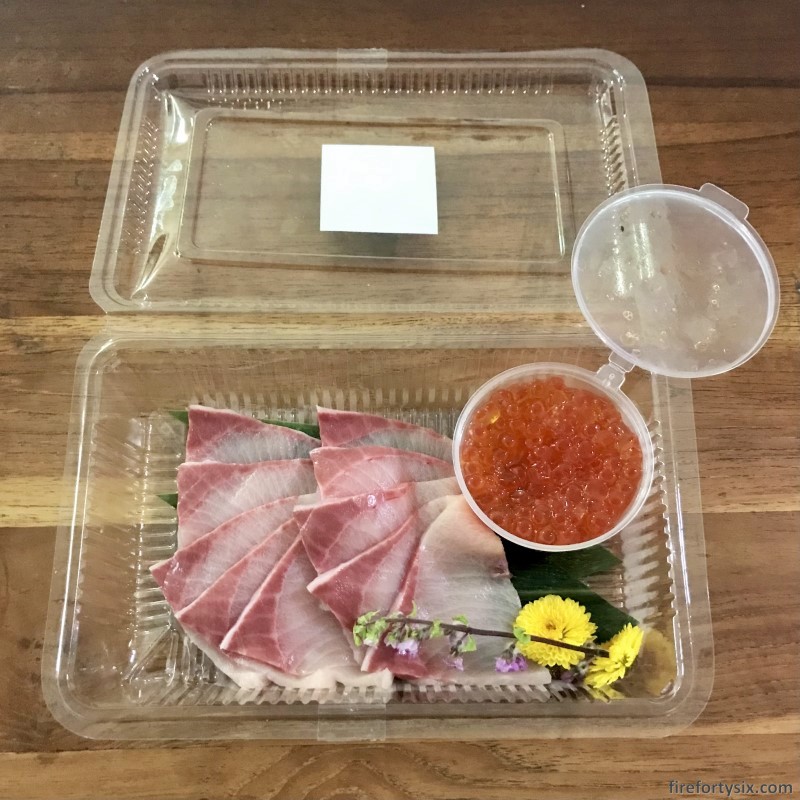
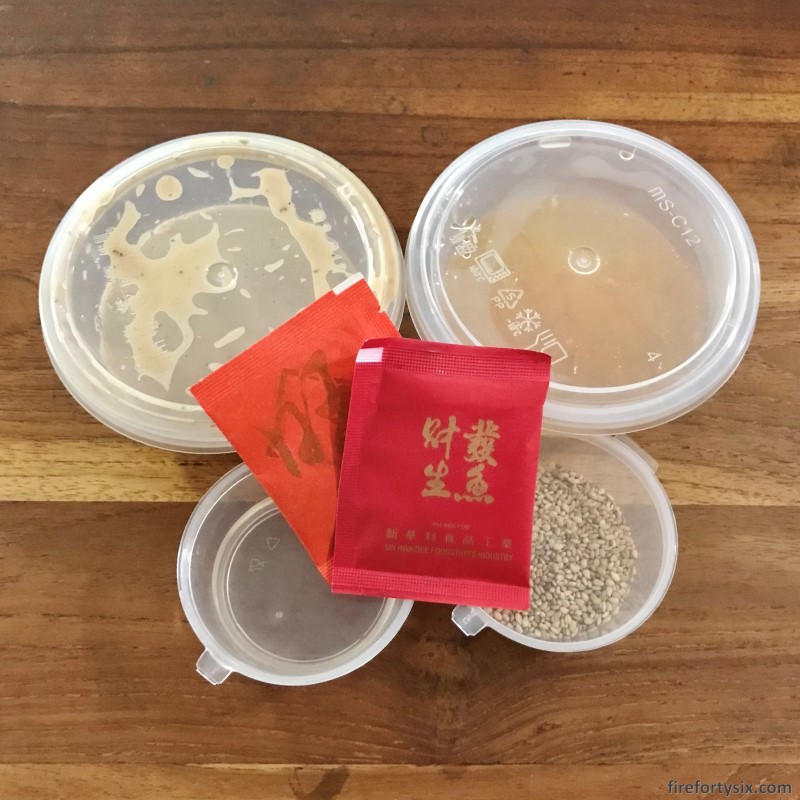
The yusheng looked exactly like its promotional photo, except for the absence of the deep-fried lotus root slices. Instead, a bag of crackers (not shown in pictures above) was provided to add crunchiness, but more importantly, to symbolise abundant wealth.
Like the crackers, many of the ingredients in yusheng have an auspicious meaning. The most important being the raw fish that the dish is named after. Scattering the fish throughout ensures abundance and surplus throughout the year, or 年年有余 (nián nián yǒu yú) in Chinese.
When each ingredient is added to the mix, relevant auspicious phrases are said out loud. Tanoke helpfully provides these in their useful guide, with wealth being the dominant theme among the sayings.
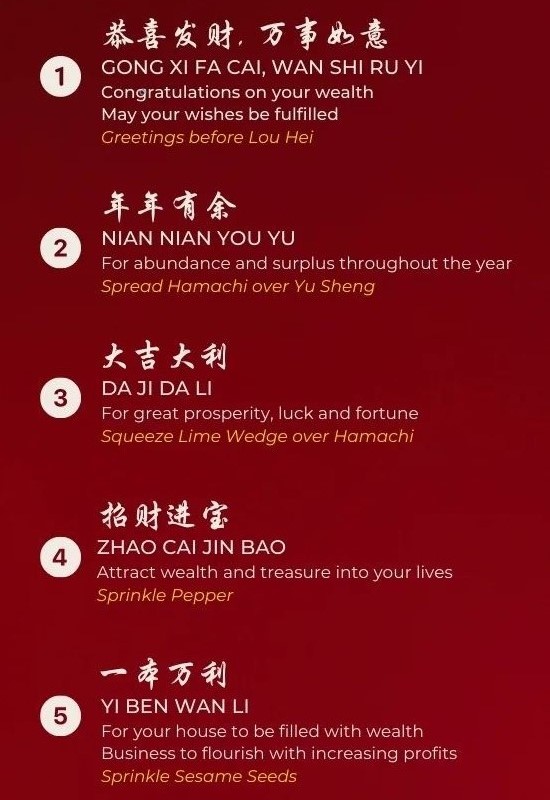
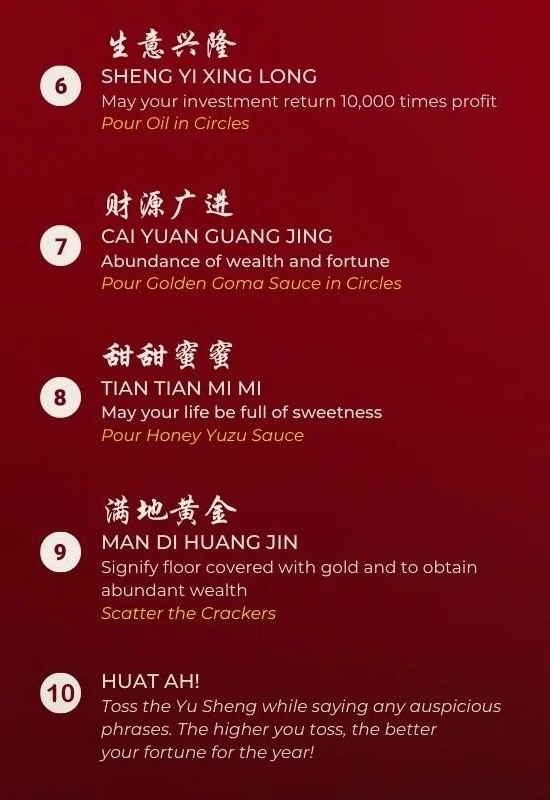
We didn’t follow the guide and simply went with what we were familiar with, and have been saying all these years. Since it was just the two of us this time, we were subdued in our tossing and didn’t make a mess.
The Japanese touches in Tanoke’s Prosperity Yusheng set it apart from others. The fatty and full-flavoured hamachi was a nice departure from plain-old salmon, and the orange orbs of well-mixed ikura provided delightful bursts of salty umami.
A stalk of hojiso (shiso flower) was provided as a garnish to the fish, but we didn’t let it go to waste by stripping all the mini-blooms and scattering it into the dish. It’s a pity there was so little of it, as it added a delightful accent.
Mixing shredded shiso leaves into the vegetables would have been even better, further enhancing the Japanese feel. Perhaps something that Tanoke’s chefs might want to consider?
The honey yuzu and goma sauces used to dress the salad were also a welcome change from the usual, and overly sweet, plum sauce. The jammy and citrusy yuzu worked well with the creamy and nutty goma.

We really liked the yusheng and even though it was meant for 5-6 people, the two of us finished everything, making sure to leave a small amount behind to symbolise surplus (余).
The other item that we ordered for dinner that day was the Vegetarian Donburi, which actually doesn’t exist on their menu anymore. We had it sometime last year and thoroughly enjoyed it.
So, when I was ordering the yusheng, I thought that I’d try my luck and ask them on Whatsapp if there was any chance they could make one for us. Amazingly, the chef agreed and we were able to enjoy the wonderful donburi a second time.
Of all the items in the donburi, the one we particularly liked was the nasu dengaku (grilled miso-glazed eggplant). Eggplant is an acquired taste, but the rich flavours imparted from both the grilling and the miso paste makes it especially approachable.
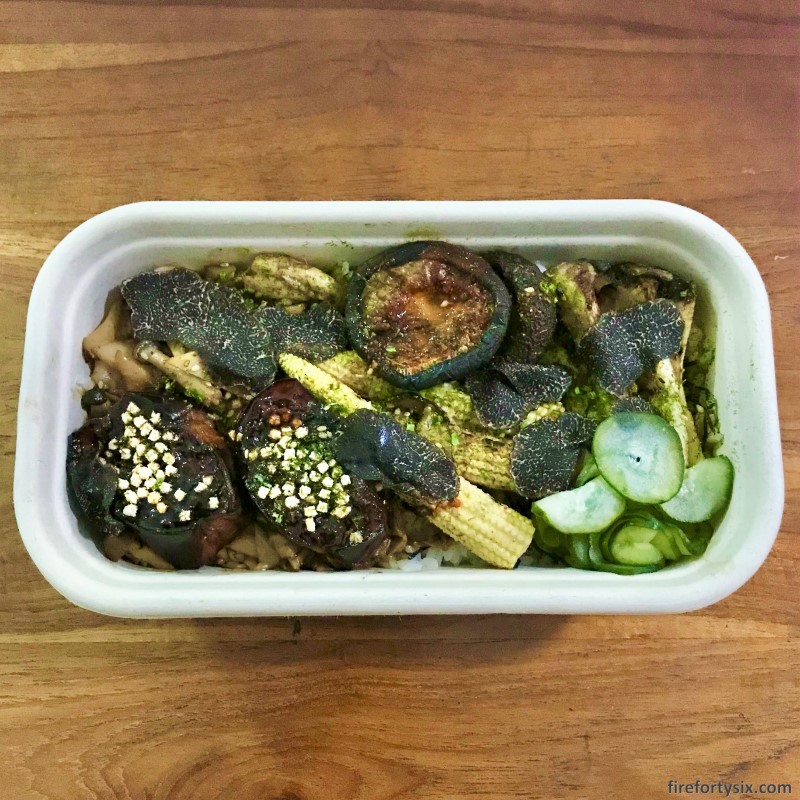
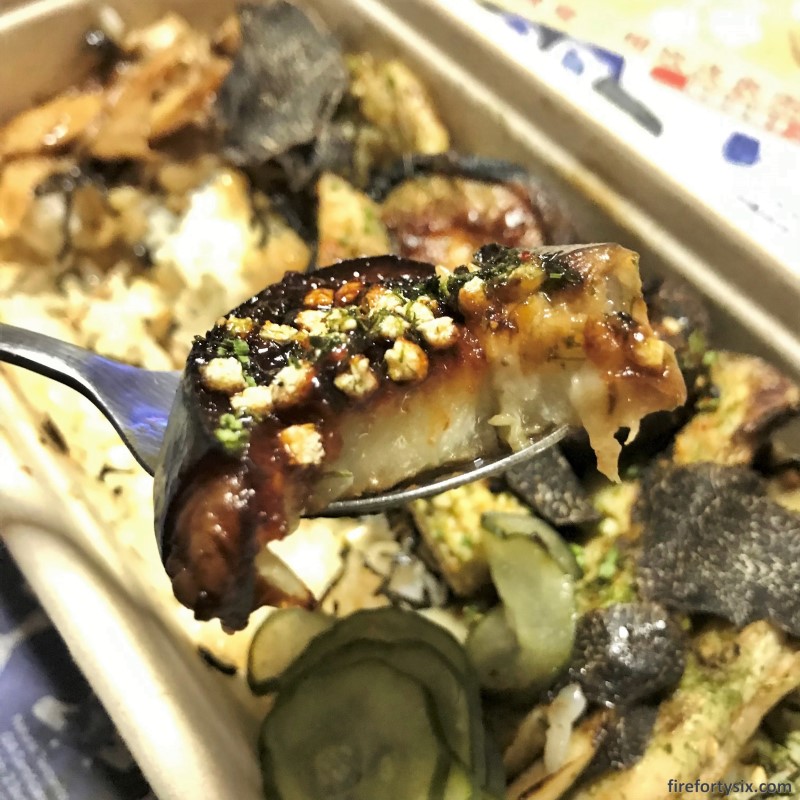
Our dinner that night was both filling and healthy. After all, the yusheng was basically one huge salad with seafood toppings, and the donburi consistently purely of vegetables.
Luckily, we had ordered another portion of the yusheng for the coming Saturday, as part of our contribution to a small party at a friend’s place. Given that they also enjoy Japanese food, I’m sure it will be well-received.
Oh, remember the friendly delivery guy I mentioned earlier? Turns out that he was actually the restaurant’s head chef! I only found out who he was after messaging them to say how much we liked the food.
Rio, we’ll be picking up our second Prosperity Yusheng this coming Saturday evening at your restaurant. Hope to see you again then!
